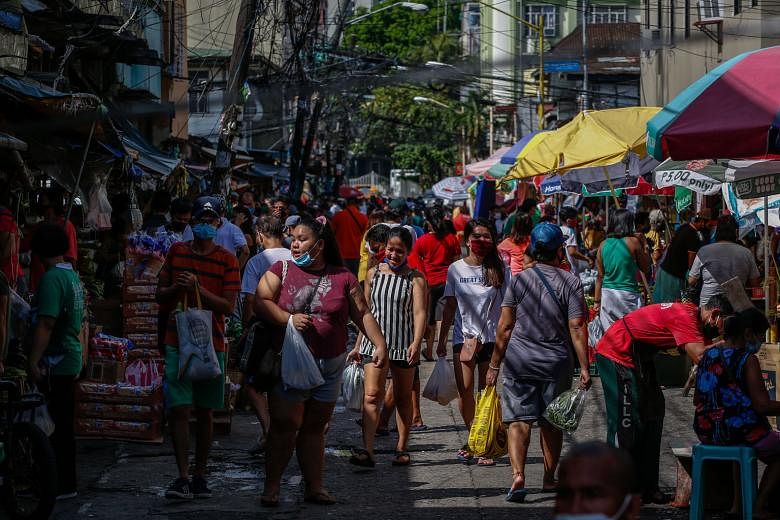Bus and jeepney drivers compiling a "passenger manifest". Malls issuing time cards to shoppers to limit their stay to just an hour. Churches collecting not just tithes but also the names and contact numbers of those attending mass.
These are just some of the steps the Philippines is taking as it begins to relax some of the strictest lockdown curbs in South-east Asia.
The government this week allowed a host of companies to reopen, but with only half their usual workforce. Malls have also reopened, but most of their retail stores remain closed.
Photos showing crowds milling inside one of the largest malls set off alarms. The images later turned out to be fake news but Governor Jonvic Remulla of Cavite, a big province south of Manila, shut down all the malls again.
He later allowed them to reopen, but decreed that all mall-goers should be issued time cards to limit their stay to just an hour. Safety marshals were instructed to check these time cards.
Those buying groceries were allowed to finish their chores, their "conscience" their only time limit, the governor said.
However, Trade Secretary Ramon Lopez said he inspected some malls, and saw that most had just 20 per cent of their usual foot traffic.
Philippine Chamber of Commerce and Industry chief Benedicto Yujuico said some retailers told him it was not worth reopening. "People were just happy to go out and walk in the mall, but they were doing very little shopping. They were shopping for food, nothing else," he added.
But food outlets complained that they were struggling. A supervisor at a Starbucks store told The Straits Times that sales were down to just 20 per cent of his outlet's usual income before the lockdown. Restaurants say 70 per cent of their revenue is from dine-in customers.
Those doing brisk business were tools shops, do-it-yourself stores and gadget repair kiosks.
"People broke a lot of things during the lockdown. Our bestsellers are tempered glass screen covers and chargers for cellphones," said a clerk at a kiosk that sells mobile phone accessories.
The government has also allowed public transport in places outside Metro Manila where the lockdown has been downgraded to a "general community quarantine".
But regulators require drivers of buses, jeepneys and taxis to list the names and contact numbers of all passengers, and to make sure they are properly spaced apart when seated.
Churches, meanwhile, are preparing to reopen their doors, with a slew of health precautions.
Baclaran Church in Metro Manila, one of the largest in the country, may allow just 70 people to attend masses, even though it can take in as many as 7,000, especially during the Novena masses on Wednesdays, said spokesman Father Mhel Dacillo.
Churches are planning to install security cameras, and encouraging families and friends to sit in clusters, so it will be easy for them to recall who they have been in contact with while in church.
Metro Manila, which spans 16 cities and is home to more than 13 million people, has been on lockdown for over two months.
Except for two other urban centres - Cebu City and Laguna province - lockdown restrictions have been relaxed elsewhere in the country.
Despite a debate over whether the capital is indeed "flattening the curve", the government is moving to lift the lockdown by the end of this month in order to restart a heavily battered economy. The Labour Ministry estimates that as many as five million Filipinos will lose their jobs by year's end, and economic managers are forecasting a recession that may linger till next year.











